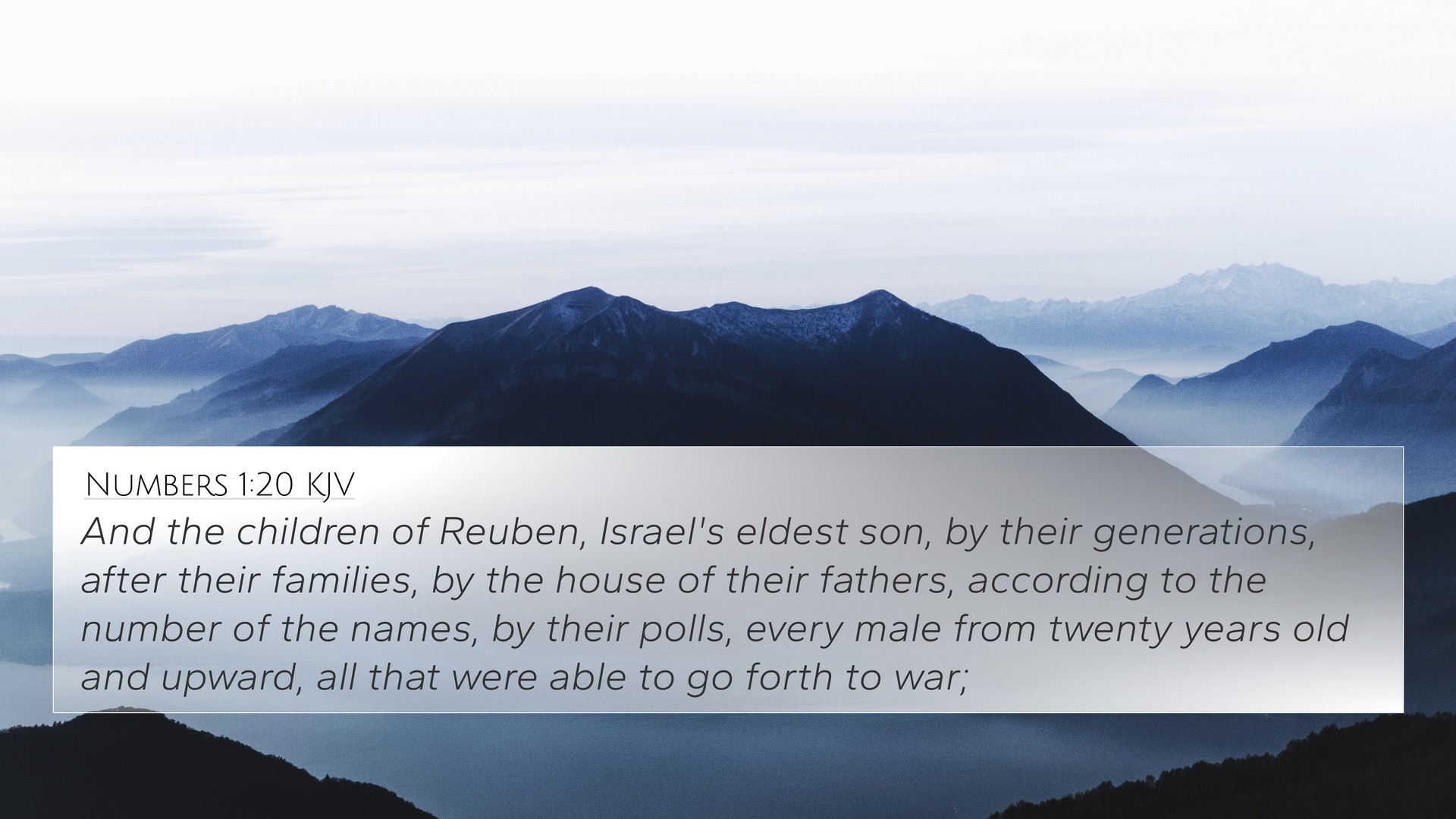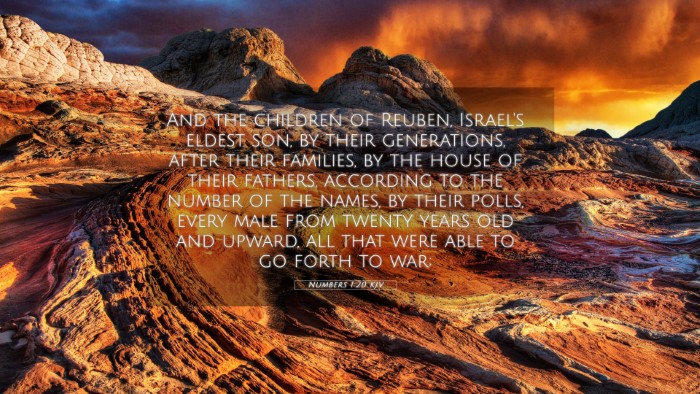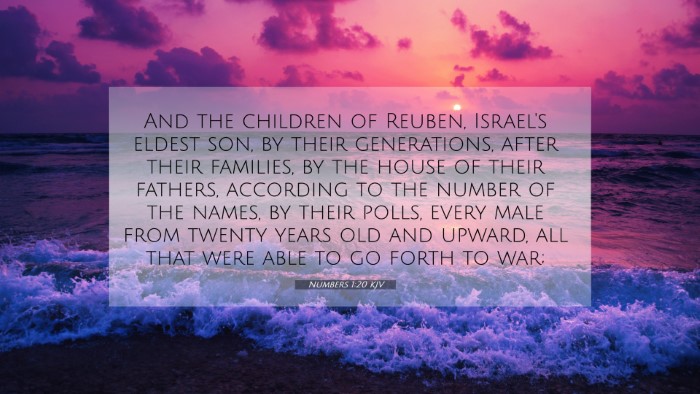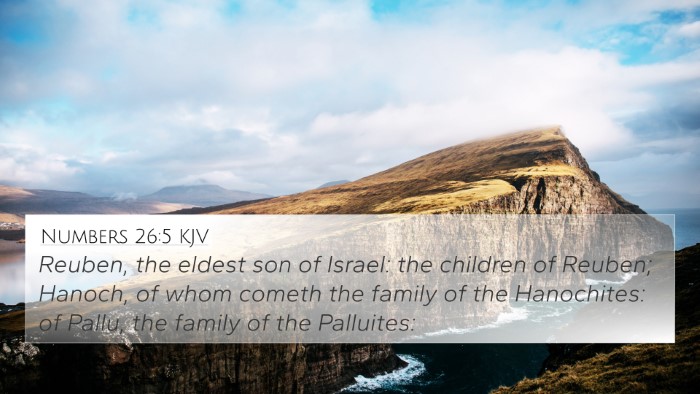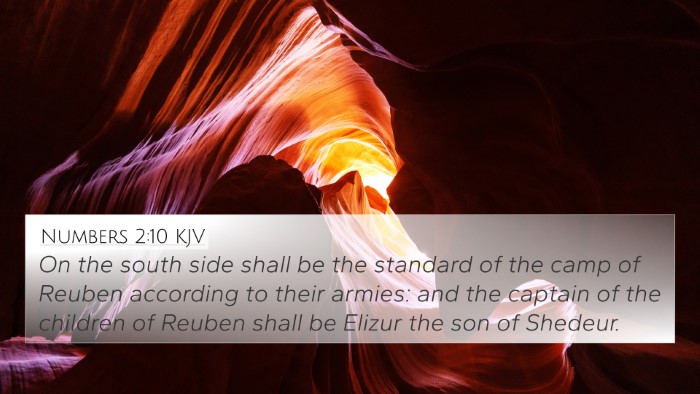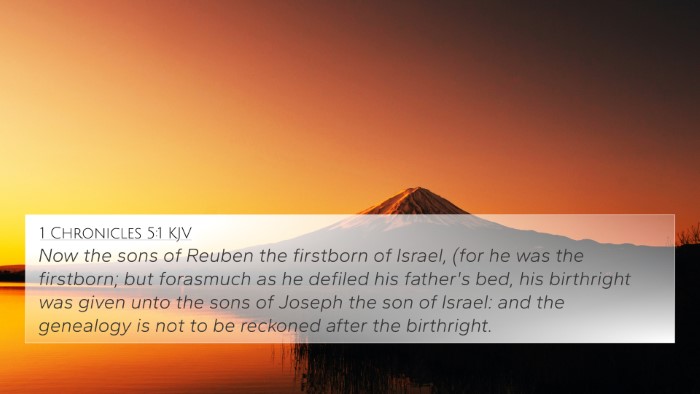Understanding Numbers 1:20
Verse: "And the children of Reuben, Israel’s eldest son, by their generations, after their families, by the house of their fathers, according to the number of the names, from twenty years old and upward, all that were able to go forth to war;" (Numbers 1:20)
Summary of the Verse
This verse is part of the census taken by Moses as instructed by God. It specifically counts the men able to go to war from the tribe of Reuben, the firstborn of Israel. The meticulous nature of the counting serves both a practical and a symbolic purpose in establishing the strength of Israel's tribes.
Commentary Insights
-
Matthew Henry:
Matthew Henry emphasizes the importance of organization within the Israelite camp and highlights that Reuben, being the firstborn, holds a significant position. The mention of "twenty years old and upward" reflects God's expectation for able-bodied men to serve, indicating a maturity level essential for leadership in battle.
-
Albert Barnes:
Albert Barnes notes that the genealogy is crucial for establishing the tribal heritage and military capabilities of Israel. Each family unit is recognized, suggesting the value of each member’s contribution to the community. This context also introduces themes of accountability and solidarity among the Israelites.
-
Adam Clarke:
Adam Clarke presents a thorough analysis of why the ages are specified, highlighting the typical age of military service in ancient Israel. He further discusses Reuben’s role within the family of tribes and how this numbering reflects the unfolding plan of God as He prepared the Israelites for their conquest of Canaan.
Bible Verse Cross-References
To understand Numbers 1:20 more deeply, here are several related verses that provide further insight:
- Exodus 30:12: This verse discusses the census and the significance of atonement for those counted.
- Deuteronomy 20:5-8: This passage elaborates on who may go to war, showing the importance of readiness and commitment.
- Nahum 3:1: A reflection on warfare and accountability within the tribes serves as a contrast to the present organization in Numbers.
- Numbers 2:10: This verse lists the tribes in detail, showing the delineation of responsibilities and roles within the Israelite camp.
- 1 Chronicles 5:1-2: This passage provides genealogical details that underscore Reuben’s importance as the firstborn.
- Matthew 5:25: Jesus discusses making peace before court proceedings, highlighting the principles of accountability and readiness, paralleling the preparation seen in Numbers.
- Hebrews 11:32-34: A New Testament acknowledgment of the faith of warriors in Israel, connecting Old Testament strength with New Testament faith.
Thematic Biblical Connections
The themes found in Numbers 1:20 resonate throughout the Scriptures:
- Leadership: The qualification of Israelite men to serve in leadership roles is explored in various places, including 1 Samuel 10:20-24, where God publicly appoints Saul.
- Faithfulness in Battle: This theme of preparation for warfare is mirrored in Joshua 1:6-9, where God encourages Joshua to lead the Israelites into the Promised Land.
- Tribal Identity: The importance of tribes is central in the context of identity, as expounded in Revelation 7:5-8, symbolizing the enduring nature of the tribes of Israel in the end times.
Practical Applications
For modern readers, Numbers 1:20 serves as a reminder of the following:
- Understanding one’s heritage and the weight of familial duty.
- The importance of being prepared and accountable in one's spiritual walk.
- The significance of community and collective responsibility in faith journeys.
Conclusion
In summary, Numbers 1:20 is a vital verse that lays the groundwork for understanding the organization, identity, and spiritual readiness of the Israelite tribe of Reuben. Through careful cross-referencing of related verses, one can observe the broader narrative of God's calling, communal responsibilities, and the importance of preparation in the life of faith.
